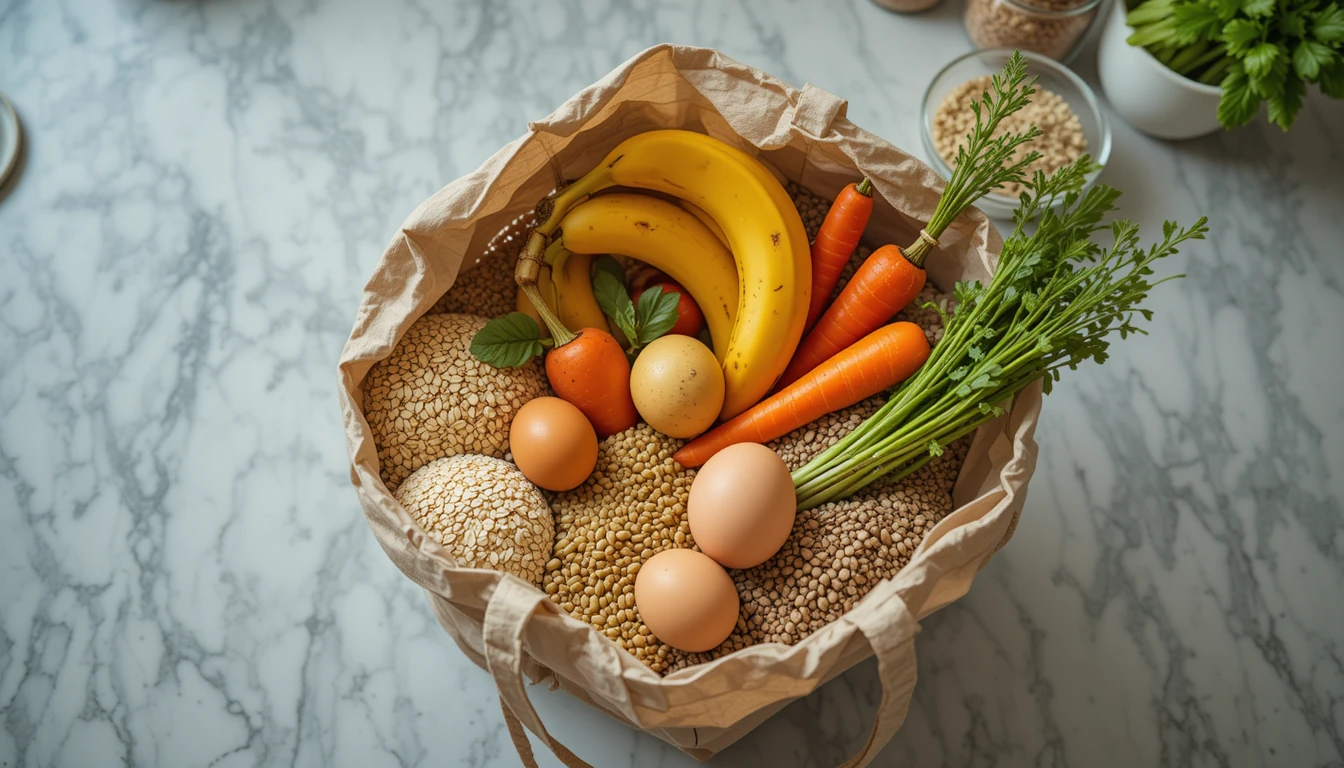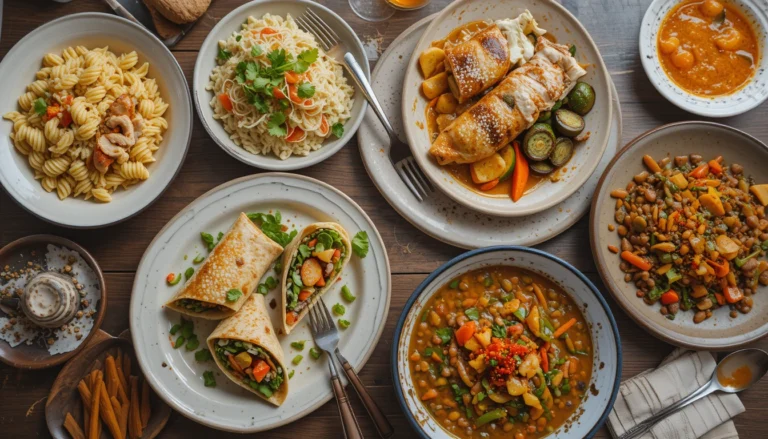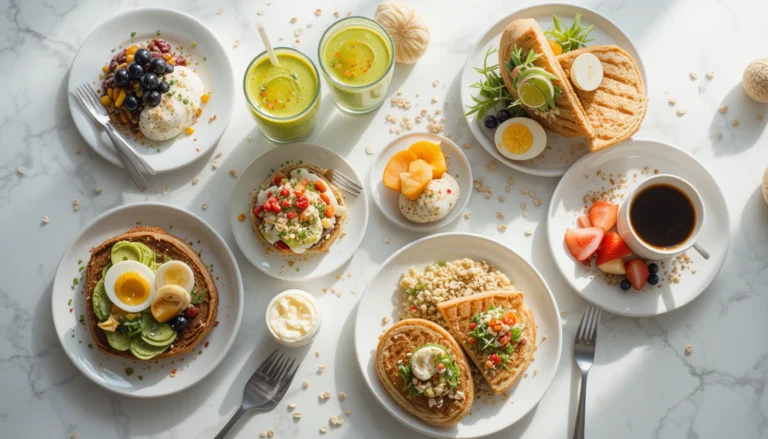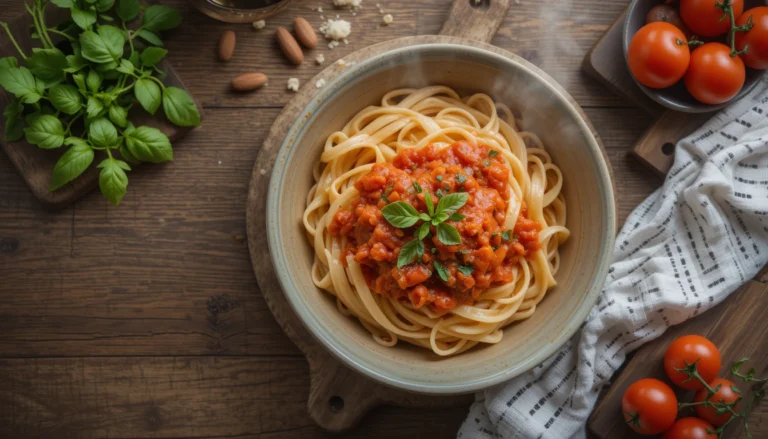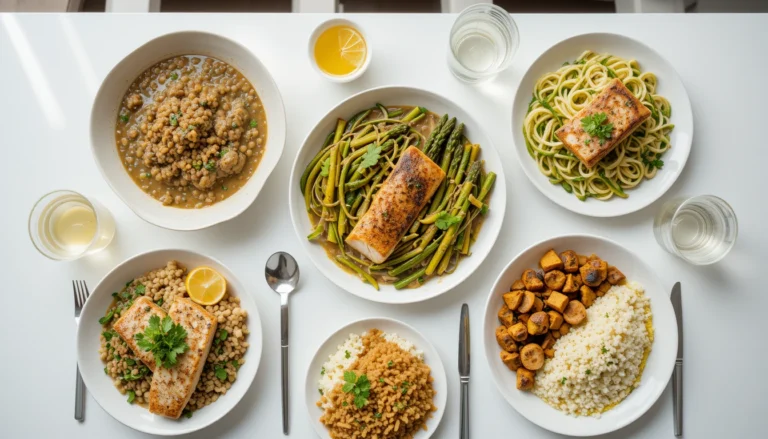🥦 How to Eat Healthy on a Budget – Simple Tips
Eating healthy is important—but what if your wallet doesn’t agree? Many people think that healthy food is expensive, but the truth is: you can eat well without breaking the bank.
With just a few smart changes and planning, you can enjoy nutritious, filling meals that support your health and save your money too. This article will show you simple and realistic tips to help you eat healthy on a budget.
🛒 1. Plan Your Meals Before Shopping
Planning your meals for the week helps you:
- Avoid waste
- Buy only what you need
- Use leftovers wisely
How to do it:
- Make a list of 5–7 simple meals
- Choose recipes with overlapping ingredients (like rice, lentils, and vegetables)
- Stick to your shopping list when you’re in the store
✅ Meal planning = more control, less spending
🥫 2. Buy in Bulk – Especially Staples
Certain healthy items are cheaper in large quantities, especially when they don’t spoil quickly.
Best bulk-buy options:
- Rice, pasta, oats
- Lentils, beans, chickpeas
- Frozen vegetables
- Nuts and seeds
Buy from local stores, wholesale markets, or online deals to save more.
🥕 3. Go for Whole Foods, Not Packaged Ones
Packaged “diet” foods or “organic snacks” are usually more expensive and often full of hidden sugar and preservatives.
Instead, buy:
- Whole grains like brown rice, oats, quinoa
- Fresh seasonal fruits and vegetables
- Eggs, tofu, or plain yogurt for protein
✅ Simple ingredients are healthier and cheaper.
🥘 4. Cook at Home More Often
Eating out or ordering food may feel easier, but it’s far more expensive than cooking at home.
Why cooking at home helps:
- You control the ingredients
- It reduces sugar, oil, and salt intake
- One meal can give leftovers for the next day
Batch cooking (making meals in advance) also saves time and money.
🛍️ 5. Shop Smart with Sales & Discounts
Look out for:
- Weekly supermarket deals
- “Buy one get one” offers
- Discounted items near expiry (freeze them if needed)
- Online coupon codes
Also, try generic brands—they are often as good as big-name products but at half the price.
🧺 6. Avoid Wasting Food
The average household wastes a lot of food every week—that’s also money going to the trash!
Avoid waste by:
- Using leftovers for soup, wraps, or stir-fries
- Freezing food before it spoils
- Storing fruits and veggies properly
✅ Less waste = more savings
🍲 7. Try Meatless Meals a Few Times a Week
Meat can be expensive. Plant-based meals are:
- Cheaper
- Lower in fat
- Still full of protein (think beans, lentils, chickpeas)
Meatless meals to try:
- Lentil soup
- Chickpea curry
- Vegetable stir-fry
- Peanut butter toast with fruit
📦 8. Use Frozen Fruits and Vegetables
Frozen produce is:
- Cheaper than fresh in many cases
- Just as nutritious (sometimes more!)
- Easier to store and lasts longer
✅ Perfect for smoothies, soups, or quick stir-fries
🧠 9. Make Healthy Snacks at Home
Instead of buying pricey protein bars or chips, try:
- Boiled eggs
- Roasted chickpeas
- Fruit and yogurt
- Homemade granola
Homemade snacks are healthier, cheaper, and can be made in batches.
📝 10. Track Your Spending and Eating
Use a notebook or free app to:
- Write down what you spend on food
- See where you can cut costs
- Keep track of what meals work best for your health and budget
✅ Budgeting your food = better choices
📊 Quick Budget-Friendly Healthy Foods Chart
| Food Item | Health Benefit | Cost-Effective Reason |
|---|---|---|
| Oats | Great for heart health | Cheap per serving, long shelf life |
| Lentils | High protein & fiber | Cook in bulk, easy to store |
| Eggs | Complete protein | Affordable & versatile |
| Bananas | Natural energy boost | Cheap & available year-round |
| Carrots | Good for eyes and skin | Low cost & long-lasting |
| Brown Rice | Complex carbs for energy | Cheaper when bought in bulk |
❓ FAQs – Eating Healthy on a Budget
| Question | Answer |
|---|---|
| Is healthy eating only possible with fresh produce? | No, frozen and canned (low-sodium) options can be just as healthy. |
| How can I eat healthy if I don’t have time to cook? | Try meal prepping once a week—cook big portions and store in containers. |
| Are cheap foods less nutritious? | Not always. Many affordable items like eggs, oats, and lentils are very nutritious. |
| Is eating healthy more expensive? | It depends on your choices. With smart planning, healthy eating can be cheaper. |
| What’s a good weekly food budget for one person? | Around $30–$50, depending on location and choices. Planning is key. |
🏁 Conclusion
Eating healthy on a budget is 100% possible. It doesn’t mean giving up flavor or variety—it just means being smart with your food choices, planning ahead, and making small changes that make a big difference.
Start with one or two of the tips in this article and build your habits gradually. You’ll be surprised at how much money you can save while still eating food that fuels your body and mind.
